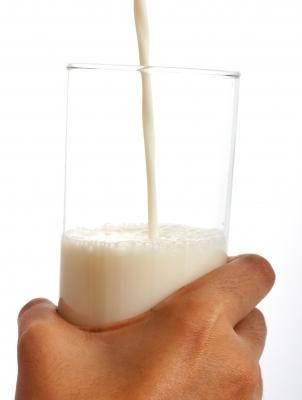
If you answered yes to the above, you could be at risk of nutritional deficiency, warns Allergy UK.
New research from Alpro has revealed 44% of people that class themselves as dairy intolerant are relying on the internet and general guess work to self-diagnose. 72% of those suffering from dairy intolerance symptoms have removed all sources of dairy from their diet, the main source of calcium in the UK. A further 25% have cut out some dairy food groups. Gut problems including stomach pain, bloating and diarrhoea were cited as the most common reasons for cutting out dairy: eczema and nasal/sinus congestion were listed fourth and fifth.
Calcium is essential for the development and maintenance of healthy bones and teeth; it also regulates muscle contractions including the heartbeat. Calcium is particularly vital for women as low levels can increase your risk of osteoporosis. It's found in foods including milk, cheese, butter, yoghurt, green leafy vegetables such as kale, broccoli and cabbage, dried fruits such as apricots, tofu and sesame seeds.
Over half of the people surveyed felt there was not enough advice out there for dairy intolerance sufferers. They would like to see more information on calcium, recipes, suitable dairy swaps and ideas for eating out. A huge 75% said they would prefer to be diagnosed by a face-to-face consultation.
If you are concerned you may have symptoms that indicate dairy intolerance, Allergy UK advises: "to help identify whether a food is a cause of symptoms, a food/symptoms diary can help to identify a pattern. We would always recommend taking the diary to your GP or allergy specialist who can diagnose what may be causing the symptoms or refer you to a dietitian."
Whether you are dairy intolerant or a dairy lover, make sure you maintain a good calcium intake in your diet...
Image courtesy of FreeDigitalPhotos

